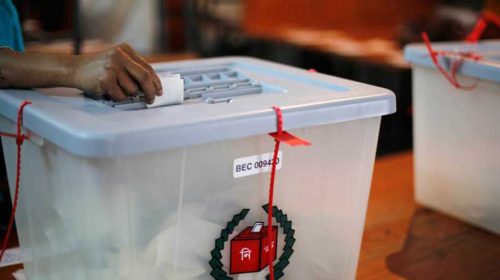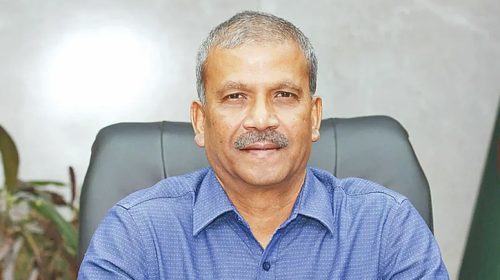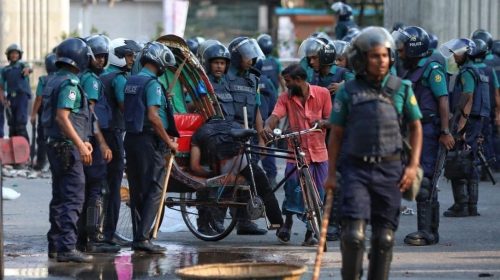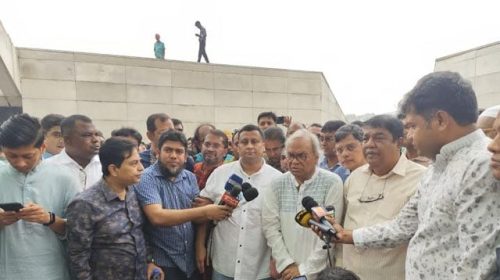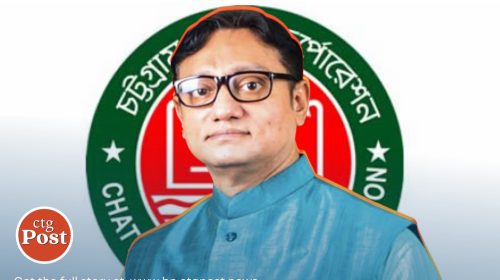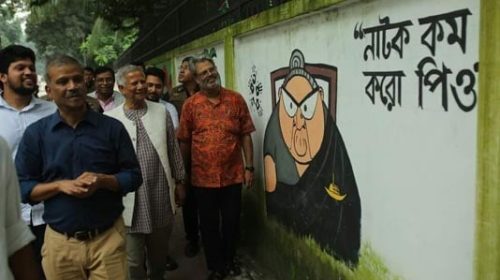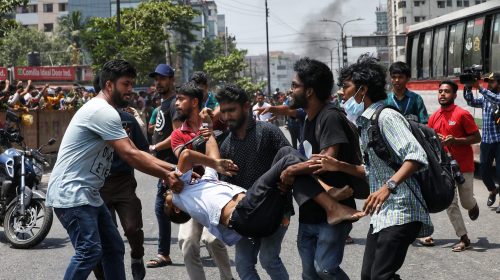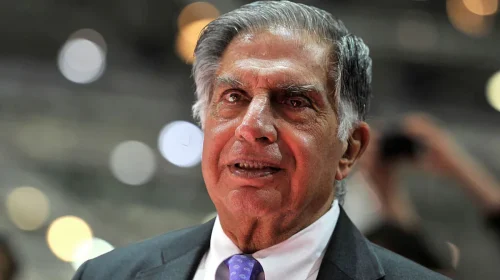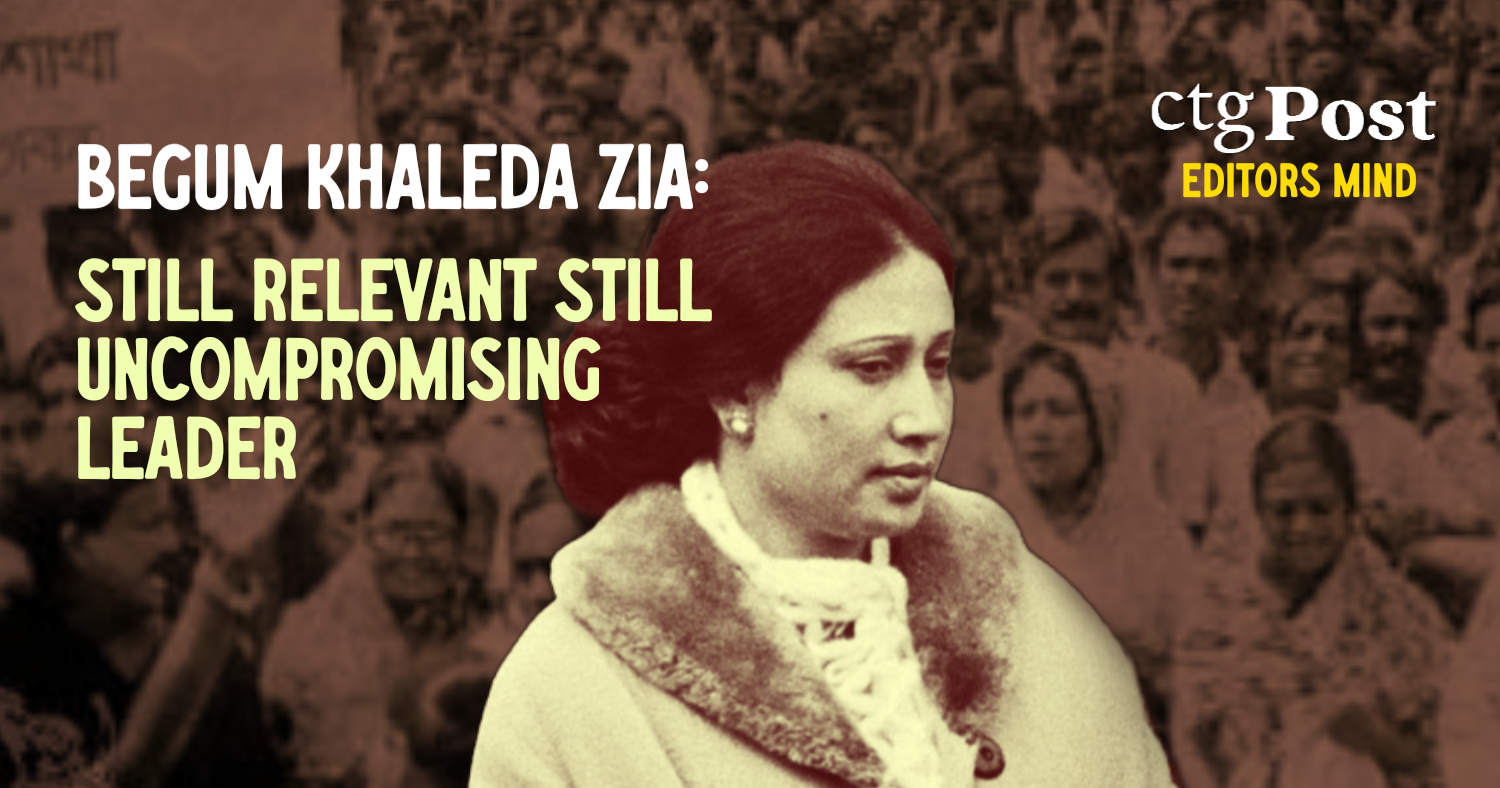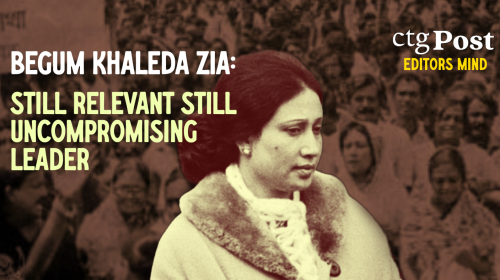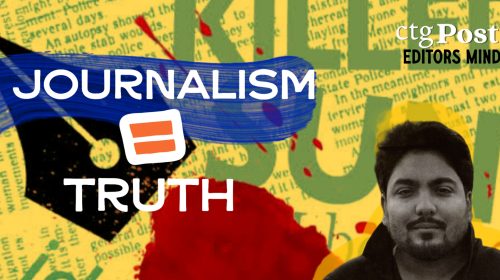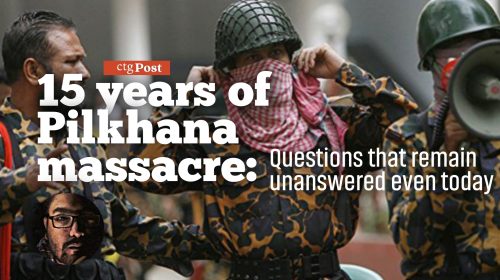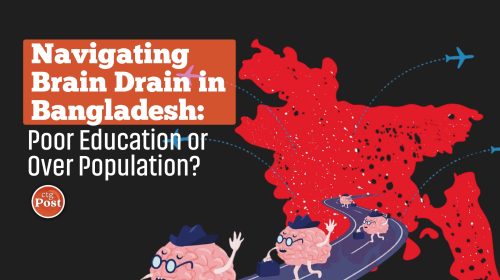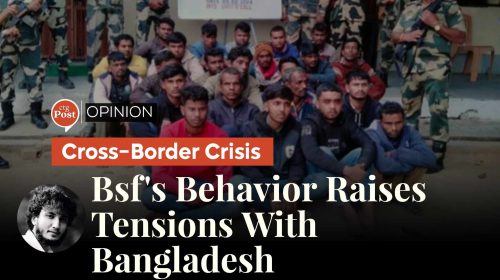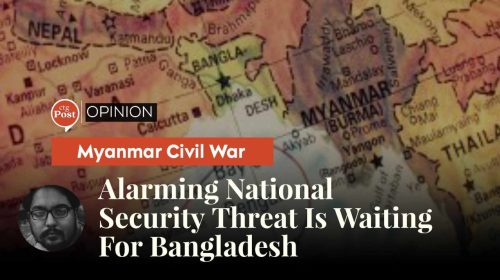Any history is not the history of ownership, it is the history of truth. The great truth is emerging from the midst of various conflicts and collisions, becoming complete.
At this moment, what truth is emerging in the politics of Bangladesh? Is it the dominance of fascism, or the resurgence of democracy? Is it the fire of the oppressor, or the rise of the oppressed? What will prevail and what will happen? It may seem that the self-destructive nature of fascism is deeply rooted in the minds and bodies, with no end in sight. Bangladesh seems to be on the brink of collapse in a chaotic democracy.
Let’s come to today’s topic about khaleda zia. Let’s revisit the history, After the sudden death of her husband, Begum Khaleda Zia emerged onto the political stage of the Bangladesh Nationalist Party (BNP). Within just 10 years, she became the Prime Minister. Throughout her long political career, she experienced a series of successes and failures in leading the party and governing the country.
In May 1981, when the founder of the BNP and President Ziaur Rahman was assassinated, Khaleda Zia was primarily known as a housewife. Politics was far from her thoughts, and she was rarely seen at any political events or gatherings.
In one scenario, there was a split within the party, while on the other hand, many leaders of the BNP joined Ershad’s cabinet – creating a situation of turmoil, conflict, and polarization for the BNP.
Mahiuddin Ahmed, who has written a research-oriented book on BNP, believes that it was during that time that Khaleda Zia emerged as an indispensable part of the party.
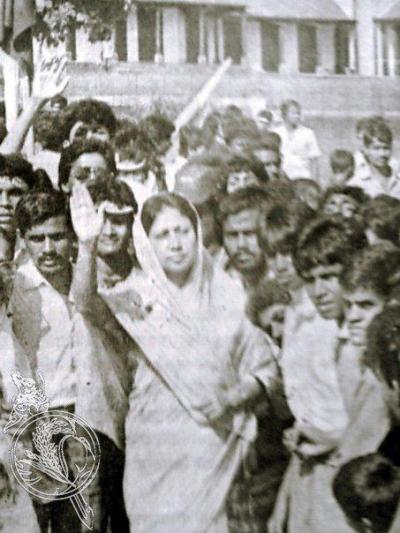
It has been stated that ziaur Rahman formed a party within the power of his words. However, later on, Khaleda Zia took that party ahead politically. It was not a political party in the way political parties are formed in our country. It was formed during the anti-Ershad movement against the backdrop of the BNP’s political party. Today, when we see the BNP, although its icon is ziaur Rahman, it is Khaleda Zia who has brought the party to this stage.
After the fall of General Ershad, in the elections held in 1991, the Bangladesh Nationalist Party emerged victorious. Within just 10 years of entering politics, Khaleda Zia became the Prime Minister.
During the anti-Ershad movement, although she was arrested several times, the BNP Chairperson did not step back from the movement. At that time, BNP’s current standing committee member, Selima Rahman, closely observed Khaleda Zia. She stated that Khaleda Zia always did what she said. Selima Rahman never witnessed her breaking down mentally.
In 1996, under the leadership of the Bangladesh Nationalist Party (BNP), Khaleda Zia emerged victorious in a controversial election and became the Prime Minister for a short period of time. However, she went on to lead the government for two full terms. When she first became Prime Minister, she had no prior experience in governing the country. She was even new to the parliament. But in her first election, Khaleda Zia won in all five constituencies she contested from. Throughout her political career, she never faced defeat in any election she participated in. Khaleda Zia’s governance has been widely analyzed by political observers, dividing it into two periods: 1991-1996 and 2001-2006.
Dr. Sayeed Iftekhar Ahmed, a professor at the University of America’s public university system, stated that Khaleda Zia did not gain much notoriety for corruption during her first term in office. Additionally, during that time, she played a significant role in establishing women’s rights.
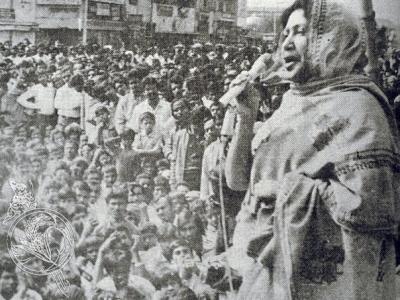
Ahmed stated that ‘Bangladesh is an extremely conservative nation. In that conservative nation, she became the first female Prime Minister. She broke the barriers of the prevalent stereotypes surrounding women and shattered the glass ceilings of those stereotypes in Bangladesh. I always remember her significant role in the advancement of women in Bangladesh.’
Late Journalist Mahfuz Ullah published a book on the life story of Khaleda Zia. He believed that Khaleda Zia had unwavering faith in democracy and her charisma still remains as a political figure.
Student leader, Nizam Uddin, believes that among the three generations of BNP, the most experienced in leadership is the former Prime Minister, Begum Khaleda Zia. When Ershad’s regime infiltrated the elected government of BNP, it was under Khaleda Zia’s leadership that the rights of the people and democracy were established in this country. Especially in women’s education, she is a silent revolutionary. From an ordinary housewife to the Prime Minister of Bangladesh, she has been known as the leader of the nation.
She has sacrificed her husband, President Zia, in the pursuit of politics for the people of this country. She has lost her son in the coffin of her office during the 90-day movement, where she was imprisoned for her political activities.
Right now Begum Khaleda Zia remains under house arrest, but she does not give up.
Now coming on my point,
Khaleda Zia’s critics often describe her as very “elitist.” Like her main opposition, she does not win people’s (show-off) hearts by cooking, fishing, or riding rickshaws, and her attempts are not focused on that either. Acroding to them She is not seen as a leader of the common people, this allegation is made against her.
Despite all the criticisms, Khaleda Zia remains immensely popular among the people of Bangladesh, and her popularity stems from various perspectives. Generally, Khaleda Zia engaged in opposition in every national election and never experienced defeat in any of them. If she is not considered a leader of the common people according to the critics, then how did she become so popular among the ordinary people, in the villages and towns, among the working-class people? Is it a puzzle? Or have we created a measuring scale of popularity based on urban-centric and intellectual class values that is different from the aspirations of the leader? So the question arises, do we underestimate Khaleda Zia by measuring her intelligence only with the yardstick of armchair intellectuals, or does she deserve more than that?
Critics based in the city often criticize Khaleda Zia for her educational qualifications, but a closer look reveals that this criticism actually highlights Khaleda Zia’s competence rather than her incompetence. Despite attempts to belittle this political leader by so-called educated classes, it is evident that Khaleda Zia’s leadership has transformed the BNP into a fully-fledged party.
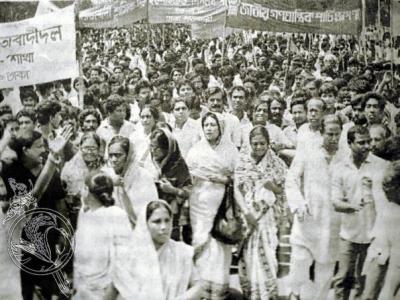
Ziaur Rahman had a major objective during his trip to Chittagong before his death, which was to bring control over the party’s stronghold in the region.However, due to the unfortunate assassination of ziaur rahman he did not had the opportunity to overcome the crisis of the transitional phase of his party.
In Zia’s lifetime, the BNP had only emerged as a political party; the organizations of the BNP were being formed at the grassroots level.
However, it has become powerful and extensive under the leadership of Khaleda Zia. Khaleda Zia, the same “grihobodhu” or housewife who transformed a political party into the main party for the restoration of democracy in the country; emerged as the main leader of the anti-Ershad movement.
In the general elections of 1986, when Sheikh Hasina elected under Ershad’s rule, this so called “uneducated” leader did not give up. There are still remnants of chaos in the history of democracy in Bangladesh, be grateful for that.
many Bangladesh’s renowned feminist critics also prefer to criticize Khaleda Zia’s political role by focusing on her external beauty as a woman. They mock Khaleda’s makeup, shaped eyebrows, and chiffon sarees. This aspect also highlights that they only see Khaleda as a woman, not as a human being. Therefore, her mental beauty is not discussed in their criticisms. Let’s give an example. On May 25, 1989, Khaleda Zia went to Shibganj, a sub-district of the northern region of the country, to participate in the anti-Farakka Barrage march. Shibganj is about 10 kilometers away from KanSat, the nearest bus stop. It was assumed that Khaleda would go there by car and the procession would go on foot. But Khaleda Zia said that she would walk with the procession. Khaleda walked the entire path with thousands of people. At the end of the march, she demanded justice for Bangladesh’s fair share of water resources.
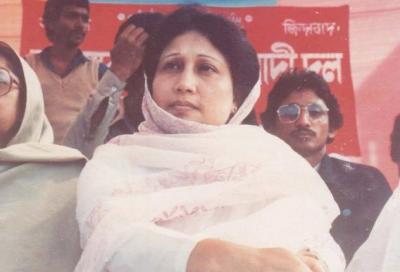
Khaleda Zia, who walks 10 kilometers with the strength of her mental power, stays on the field or we can say in bangla the ‘rajpoth’ to protect democracy, and we forget about that beauty. We forget that Khaleda Zia initiated the establishment of a path for the empowerment of millions of women by starting an allowance for women.
We often forget these things because the present government and its followers only allow one narrative from history to come forward. In their attempt to distort this truth, everyone else becomes a traitor. It is our desire and unwillingness to forget who else could have a role in the country as a political party other than the Awami League, or who else could contribute without being part of a family.
In the current political reality, saying anything in favor of Khaleda Zia or the BNP seems like a crime, no matter how true it may be. Therefore, our clever intellectuals always try to balance things. Even if they do not need it, they criticize the BNP and then love to present their own views.
Criticizing the BNP as an opposition party or a weak opposition seems quite easy. And this easy task is done by our transparent intellectual class.
When Khaleda Zia is fighting against life and death, many are worried about the future of the BNP. Speculations are circulating in the media about how BNP will be identified as a party after Khaleda Zia’s death. For the past few years, BNP has been considered a fragile party, sparking discussions. However, some questions remain unanswered in these discussions.
Despite numerous cases, attacks, and disappearances, why does BNP still exist at the grassroots level? How are BNP-supported candidates winning elections in local areas despite administrative negligence or the use of Awami League muscle power? Why is Awami League still afraid to hold fair elections? Are the fears of BNP’s decline, destruction, and dark future behind all these concerns, or is the narrative more inclined towards blaming the authoritarian government?
However, it was more urgent to think about the future of Bangladesh than the future of the BNP. The presence of a centrist party like the BNP is crucial for the political stability of Bangladesh, more than this concern. The availability of that presence is significant.
The absence of the BNP in Bangladesh’s politics will create a void that will bring danger to the future of Bangladesh. A weak BNP or a BNP vacuum will further empower the authoritarian leadership in Bangladesh, accelerating the rise of extremism.
The survival of both the BNP and Khaleda Zia is crucial for the politics of Bangladesh. The current ruling government has not show any signs of providing proper medical treatment for Khaleda Zia. Let us hope for the rise of the government’s wisdom. At least, there is some hope that this government possesses a fraction of the urgency to save a dying traveler, and I also want to emphasize that Khaleda Zia was important is important and always be important.


